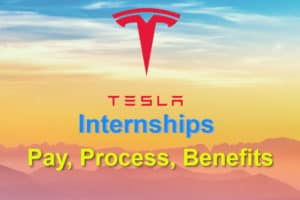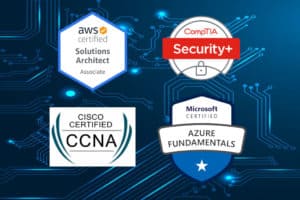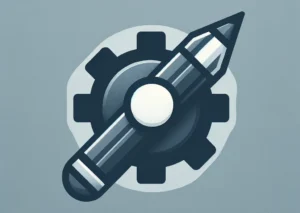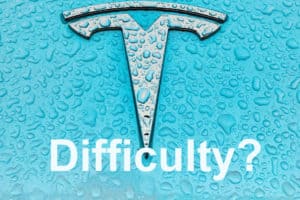Cracking the code to land a dream job at Tesla might feel like trying to solve a Rubik’s Cube blindfolded. You’ve got the smarts, the drive, and a soldering iron that’s seen more action than a blockbuster movie hero, but translating that into the ‘right’ educational path can be trickier than a moon landing.
In this blog post, you’ll unpack the educational mysteries that could set you on the path to a coveted engineering role at Tesla.
Quick Takeaways:
- Target educational paths in electrical, mechanical, or computer science engineering, adding robotics, AI, or battery tech specializations to align with Tesla’s innovation drive.
- Embrace a mindset of flexibility and continuous learning to navigate Tesla’s fast-paced and ever-evolving technological landscape.
- Cultivate a strong professional network and showcase hands-on projects or competition wins to demonstrate practical expertise and passion for sustainable energy.
What Does Tesla Look For in Engineering Candidates?
When it comes to engineering whizzes, Tesla doesn’t just look for the cream of the crop; they seek out those individuals who can truly bring something special to the table. At the core, problem-solving skills take center stage. Tesla’s challenges are as unique as their products, and they need engineers who can think on their feet and come up with creative solutions to unpredictable problems.
Innovation is another key attribute that Tesla covets. They’re not just building cars; they’re revolutionizing the way we think about transportation and energy. So, if you’re the type who’s passionate about pushing boundaries and thinking outside the box, you’re speaking Tesla’s language. And speaking of passion, a zeal for renewable energy and sustainability meshes perfectly with Tesla’s mission to accelerate the world’s transition to sustainable energy.
But it’s not all about big ideas and lofty goals. Technical expertise is essential, and so is the eagerness for continuous learning. The electric vehicle and renewable energy industries are evolving at lightning speed, and Tesla needs engineers who can keep up. That means staying agile, being ready to absorb new information like a sponge, and applying it effectively.
Adaptability is closely related to this continuous learning. If you thrive in a fast-paced environment and can pivot with the ever-shifting sands of technology and innovation, you’ve got what it takes to ride the exciting wave at Tesla.
Do I Need a Specific Degree to Work at Tesla?
You might think that Tesla only rolls out the red carpet for candidates with degrees from top-tier universities, but that’s not necessarily the case. While a formal education in fields such as Electrical Engineering, Mechanical Engineering, or Computer Science can give you a strong foundation, Tesla also values the equivalent experience and self-taught skills.
Degrees are a plus, but Tesla realizes that innovation doesn’t just come from a textbook – it also comes from hands-on experience and a can-do attitude. Practical knowledge, personal projects, or even a portfolio showing off your self-taught prowess can be your golden ticket.
Can Work Experience Substitute for Formal Education?
Let’s cut to the chase – can you land a job at Tesla without a shiny diploma on your wall? Absolutely! Tesla has made it clear that they’re open to considering candidates based on their practical experience. Here’s the deal: if you can show that you’ve got the chops through hands-on work, whether that’s from knocking it out of the park in a previous job, wowing them with your performance in internships, or contributing to cutting-edge projects, you’re in the running.
What’s the unique twist here? Tesla often posts stories about team members who have climbed the ranks from an entry-level position or tech role by showing exceptional skill and dedication. This is a testament to the company’s meritocratic ethos and commitment to fostering talent from within.
Remember, it’s not just the destination that matters; the journey counts as well. Innovative projects you’ve led or been a part of can speak volumes about your capabilities. This might include contributions to open-source projects, successful personal ventures, or practical problem-solving in unique scenarios – these endeavors can seriously bolster your odds.
To wrap this section up, just remember that while formal education can lay down the tracks, it’s your experience that’ll be the engine powering your career at Tesla forward. Keep an eye on the horizon, but don’t forget that the skills you pick up along the way could be your real ticket to success.
Feel free to continue reading as we dive into more insider tips on joining the ranks of Tesla’s innovative engineering team. Your journey’s just getting started!
How Important Are Specializations and Certifications?
When you’re angling to join a team of innovators like Tesla, every notch on your belt counts, from foundational degrees to the cherry on top: specializations and certifications. Tesla values those who bring something extra to the table – those little extras can make you shine like a diamond in a sea of competent engineers.
Specializations in robotics, artificial intelligence (AI), and battery technology are particularly appealing in Tesla’s eyes. Why? Because these fields are at the heart of what Tesla is all about: pushing the boundaries of technology to create a sustainable future. If you’re armed with an advanced degree or a certification from a reputable institution in one of these areas, you’ve got an ace up your sleeve.
However, let’s beef up that hand with some practical advice for stand-out specializations or certifications:
- Certified Robotics Engineer: A certification from the Robotics Certification Standards Alliance (RCSA) emphasizes that you’re not only knowledgeable but also dedicated to maintaining high industry standards.
- AI Professional Certificate: Get one from a renowned tech institution like Stanford University to showcase your expertise in machine learning and AI.
- Professional Engineer (PE) License: It’s a legal requirement for certain engineering positions and stands as a testament to one’s expertise and dedication to ethical practice.
But hold your horses – it’s not just about stacking up degrees and certificates. Tesla is looking for the bold, the innovative, the ones who are ready to tackle complex problems. And sometimes, what you need can’t be found in a classroom.
What Can You Do to Boost Your Chances Beyond Education?
Now, let’s talk turkey. You’ve got the degrees, maybe a certification or two, but you’re swimming upstream and need to stand out. Here’s an ace in the hole most folks don’t think about: tangible proof of your passion and skill.
Roll up your sleeves and dive into engineering competitions or hackathons. Events like Formula SAE or the International Aerial Robotics Competition show off your technical prowess and teamwork skills. Not to mention, they’re a playground for innovation – something that Tesla holds in high esteem.
Furthermore, consider personal projects. Got a DIY solar power setup at home? Built an app that uses AI to optimize daily tasks? That’s the kind of get-up-and-go Tesla admires. Real-world applications of your skills demonstrate initiative and problem-solving abilities that can’t be ignored.
What’s more, network, network, network. It’s not just what you know, it’s who you know. Attend industry events, connect on LinkedIn, and maybe even strike up a conversation on Tesla-oriented forums or subreddits. Get your name out there, and make it stick by showcasing your knowledge and enthusiasm.
Lastly, walk the talk. Tesla’s mission is “to accelerate the world’s transition to sustainable energy.” If your personal or professional projects align with this ethos, let it shine through. It shows you’re not just looking for a job, you’re on a mission.
To Recap , if you’re gunning for a spot at Tesla, pack your toolbox with:
- Wins from engineering showdowns or code-fests.
- Personal projects that get your hands dirty and your brain buzzing – ideally in green tech or automation.
- A Rolodex of industry connections and Tesla enthusiasts.
- A lifestyle or portfolio that screams “sustainable future.”
Whether it’s the sparkle of specialized knowledge or the grit shown through outside experiences, that’s what could turn the heads of Tesla’s hiring maestros. Remember, it’s not just about being another cog in the machine; it’s about what makes you the cog that keeps the machine leapfrogging into the future.



![What Are the Requirements to Work at Tesla? [Guide] Tesla logo_Requirements, Degrees, Skills](https://howmonk.com/wp-content/uploads/2022/09/Tesla-3D-icon-in-dark-mode-300x200.jpg)




